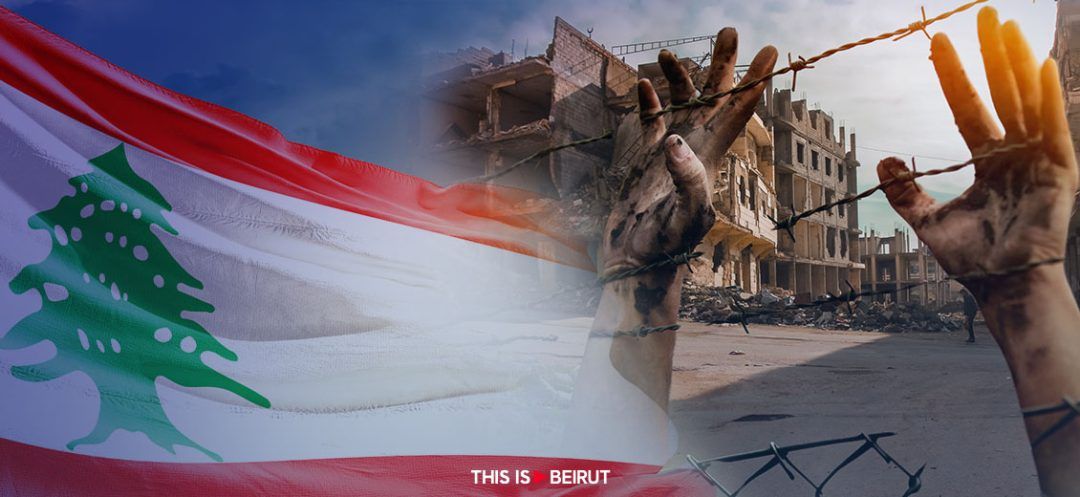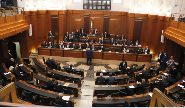
The recent surge of security incidents in Lebanon leaves no room for doubt: they mask a deliberate scheme aimed at destabilizing the country, and a conspiracy undermining civil peace, coexistence and national unity. The latest destabilizing incident was the kidnapping and killing of Pascal Sleiman, Lebanese Forces coordinator in the Jbeil district, and dumping his body in Syrian territory.
During interrogation, the suspected kidnappers initially claimed that they were after the car. However, their "masquerade" quickly crumbled as they left the vehicle behind and transported Sleiman's body to Syria after killing him. They entered Syrian territory through illicit crossings in a suspicious manner, in an area that is reportedly under Hezbollah's control, according to Syrian media. This has raised multiple questions about the operation's motives and its masterminds.
Why did the masterminds of the crime, who are supposedly "unknown," resort to "hiring" Syrian displaced persons to execute their plan of kidnapping and killing Sleiman? Were they aiming to kill two birds with one stone? Perhaps to incite a Christian-Muslim civil war, and another Syrian-Christian clash since Syrian nationals were assigned to carry out the task?
Following Sleiman’s slaying, another crime unfolded in Beit Mery, an area of the Metn region, where money changer Mohammad Srour was found murdered under mysterious circumstances. The two incidents coincided with an attack on the headquarters of the National Syrian Social Party (NSSP) in Jdita, Bekaa. The perpetrators left the flag of the Lebanese Forces at the scene, to stoke the flames of discord and amplify sectarian tensions, particularly as electronic armies had been striving on social media platforms to nurture dissent.
Stoking the flames of discord comes at a crucial juncture, as the Middle East embarks on the grand settlement process for comprehensive, equitable and enduring peace. Obviously, certain political factions are seeking to fortify their stance on the political arena, assert their role in a future settlement and expand their influence in the region.
This was illustrated by recent stances by Hezbollah’s Secretary-General Hassan Nasrallah, who underscored "his role as a guarantor of Resolution 1701's implementation" on the condition that Israel announces the cessation of breaches on land, sea and air, and positioned himself as a "defender of civil peace, national unity and coexistence." Hence, following Sleiman’s crime, he accused the Lebanese Forces (LF) and the Kataeb party of instigating civil war, in light of accusations leveled by political and popular powers against Hezbollah.
Nasrallah claimed that the Shiite tandem Amal and Hezbollah has been preventing war and discord by avoiding friction following such incidents as the Tayouneh-Ain el Remmaneh incident in November 2021 that pitted LF partisans against Hezbollah and Amal followers. He stated that threats were served against the Shiite community in Jbeil and Kesrouan, a matter that was denied by the religious Shiite authorities in Jbeil.
In fact, Nasrallah's comments sent a strong message to the "sovereigntist camp," particularly the LF and the Kataeb, urging them to align with the "resistance" project.
To definitively quash "conspiracies and rumors," the "sovereigntist powers" required that the whole truth about Sleiman's murder be unveiled.
A Western security source voiced concern that more bloody messages and incidents might occur as part of a conspiracy to destabilize Lebanon and coerce the anti-Hezbollah forces into acquiescing to the so-called "resistance" project.
Meanwhile, French efforts continue and are aimed at resolving the presidential deadlock and separating the fate of the front in South Lebanon from the war in Gaza. French envoy Jean-Yves Le Drian is holding discussions in Washington, mainly with US envoy to Lebanon Amos Hochstein. Afterwards, Le Drian will tour the five nations making up the "Quintet" (US, France, Saudi Arabia, Qatar and Egypt), among others, to expedite the election of a president.
As external pressure to elect a president is mounting on Lebanese factions, the Quintet’s ambassadors are resuming meetings with Lebanese leadership to push in that direction. However, the responsibility for choosing the president rests with Lebanese MPs. Opposition circles are questioning whether the Amal-Hezbollah Shiite tandem is intentionally evading the election of a consensus president in order to generate internal political and security problems.
Read more



Comments